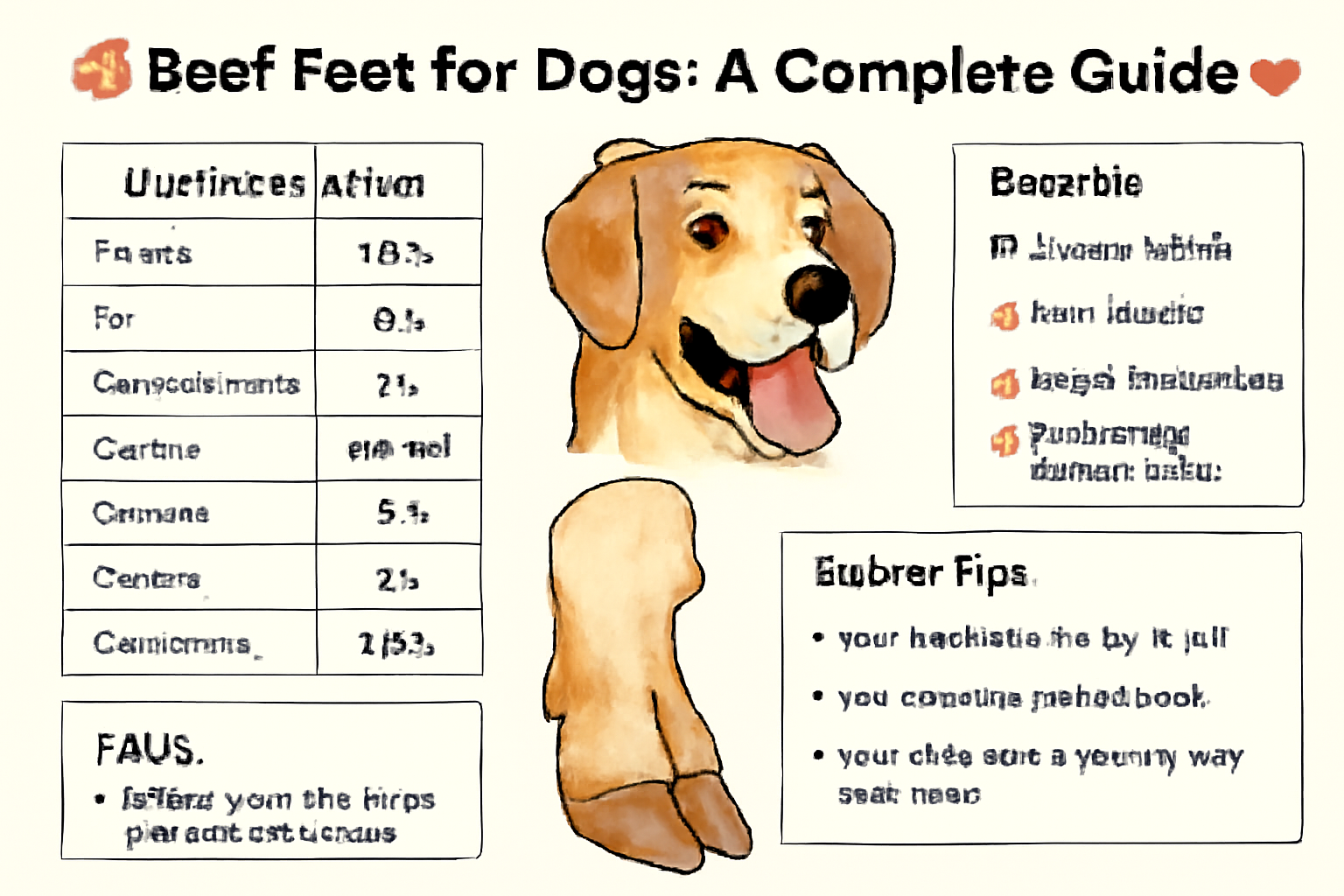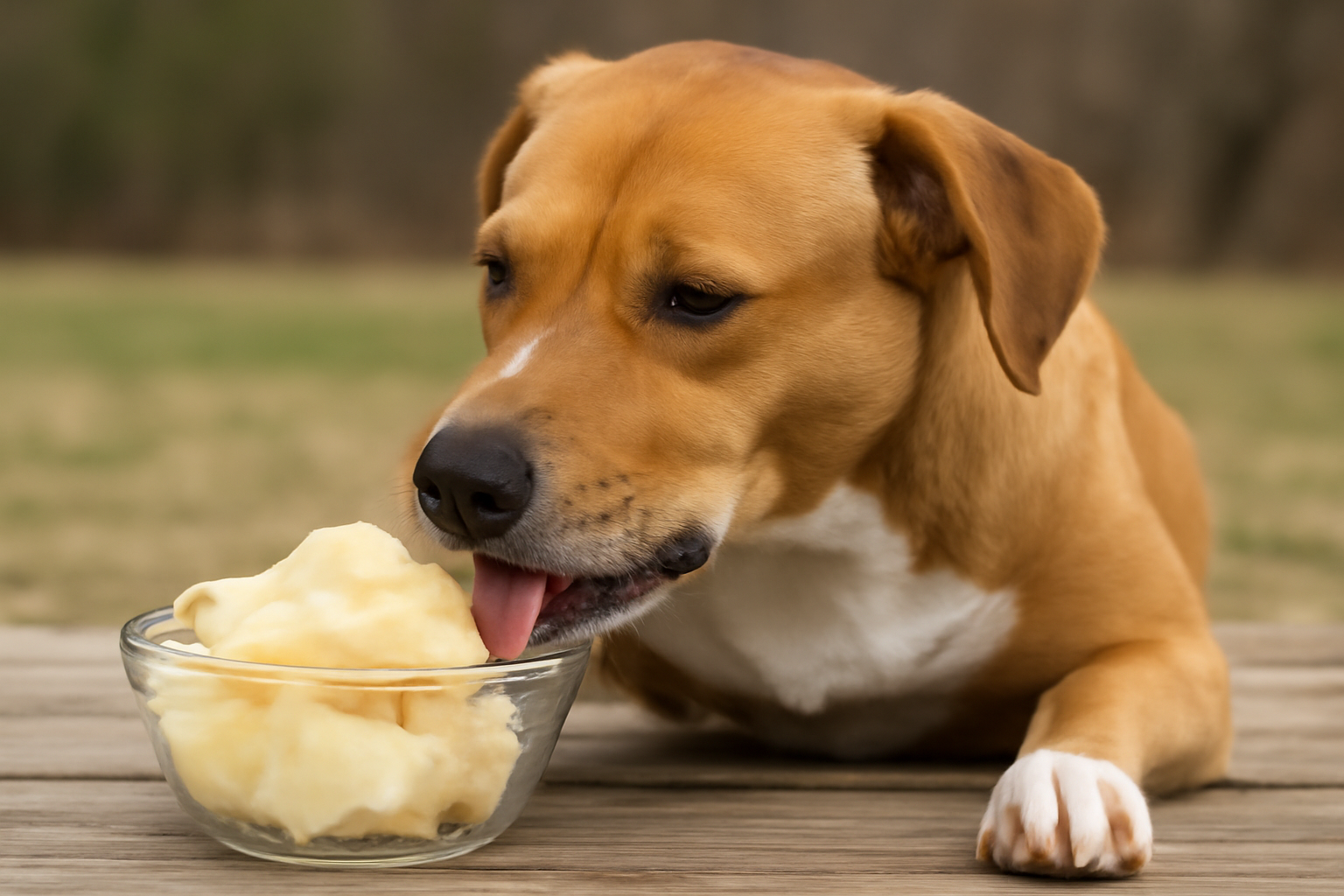Can Dogs Eat Frozen Meat? 🐶❄️🍖
As pet owners, we always want to make sure we’re feeding our dogs the best possible food to keep them healthy and happy. From dry kibble to fresh meat, there are many choices when it comes to feeding our furry friends. One common question that many pet owners ask is: Can dogs eat frozen meat?
The short answer is yes, dogs can eat frozen meat, but there are important things to consider when feeding your dog frozen meat. In this article, we’ll explore the benefits, risks, and best practices for feeding frozen meat to dogs. We’ll also discuss how frozen meat can be safely included in your dog’s diet, the potential health benefits, and provide some guidelines to keep your dog safe.
Why Do People Feed Frozen Meat to Dogs? 🤔
Frozen meat can be a great addition to your dog’s diet for several reasons. Many dog owners feed their pets raw or frozen meat as part of a raw feeding approach, which involves feeding dogs food that is closer to what their wild ancestors might have eaten. This approach is often called BARF (Biologically Appropriate Raw Food) and includes raw meat, bones, vegetables, and fruit.
Here are some reasons why frozen meat is sometimes fed to dogs:
- High-Quality Protein Source 🍖
Frozen meat is a great source of protein, which is essential for muscle growth, repair, and overall energy. Meats like beef, chicken, lamb, and turkey can help provide high-quality protein for your dog’s diet. - Natural Ingredients 🌱
Many dog food brands that use frozen meat aim to offer a more natural diet that includes less processed food and more whole, fresh ingredients. - Nutrient-Rich 💪
Frozen meat, especially when it’s raw or minimally processed, contains essential vitamins and minerals like B vitamins, iron, and zinc, which can help support your dog’s immune system, coat health, and overall well-being. - Helps Dogs with Food Sensitivities 🌾
If your dog has food allergies or sensitivities, frozen meat can provide a limited ingredient diet, which may help avoid common allergens found in processed dog foods.
Benefits of Feeding Frozen Meat to Dogs 🦴
When prepared and served correctly, frozen meat can offer several health benefits for your dog. Here are some of the top benefits of feeding your dog frozen meat:
1. Supports Strong Muscles and Healthy Skin 💪🦴
Meat is packed with protein, which is essential for building and repairing muscle tissue. It also supports the production of collagen, a protein that helps maintain healthy skin, joints, and cartilage. Frozen meat, especially when it’s fresh and unprocessed, is an excellent source of these nutrients.
2. Boosts Immune Health 🛡️
Meat contains important vitamins and minerals, including iron, zinc, and B vitamins, which support your dog’s immune system. A strong immune system helps your dog fight off infections and recover from illness faster.
3. Improves Digestion 🐕💩
Frozen meat, especially when it’s raw, contains natural enzymes that aid in digestion. These enzymes can help break down food more effectively and contribute to a healthy gut. When frozen meat is served with bones, it can also serve as a natural toothbrush, helping to clean your dog’s teeth and maintain good oral health.
4. Supports Joint Health 🦵
Frozen meat, particularly those with bone and cartilage, provides glucosamine and chondroitin, which are essential for joint health. These nutrients help maintain joint mobility and may reduce the risk of joint issues, such as arthritis, especially in older dogs.
Risks of Feeding Frozen Meat to Dogs ⚠️
While frozen meat can offer many benefits, it’s not without risks. There are several things to be aware of when feeding your dog frozen meat to ensure their safety:
1. Bacterial Contamination 🦠
Raw meat, including frozen meat, can carry harmful bacteria like Salmonella and E. coli, which can cause serious illness in both dogs and humans. If you decide to feed your dog frozen meat, it’s important to handle the meat properly to minimize the risk of contamination.
- Always thaw meat in the fridge, not at room temperature, to avoid bacteria growth.
- If you choose to feed your dog raw meat, make sure it is from a trusted, reputable supplier that follows proper food safety practices.
2. Bones Can Be Dangerous 🦴
While bones are often part of a raw diet, cooked bones or brittle bones can pose a choking hazard and may splinter, causing damage to your dog’s digestive tract. If you’re feeding frozen meat with bones, make sure they’re raw and not cooked to avoid splintering. Supervise your dog when they eat bones, especially if it’s a larger piece.
3. Digestive Upset 🤢
Introducing frozen meat into your dog’s diet can cause digestive upset if not done gradually. If your dog isn’t used to eating raw or frozen meat, it’s important to introduce it slowly to avoid symptoms like vomiting, diarrhea, or bloating.
4. Nutritional Imbalance ⚖️
Feeding your dog only frozen meat can lead to nutritional imbalance if it’s not part of a balanced diet. Dogs need a variety of nutrients from different sources, including vegetables, fruits, and grains, to stay healthy. Meat alone won’t provide the necessary vitamins and minerals.
How to Safely Feed Frozen Meat to Dogs 🐕
If you decide to feed your dog frozen meat, there are a few steps you can take to do so safely:
1. Choose High-Quality Frozen Meat 🥩
Make sure the frozen meat you’re feeding your dog is high-quality and comes from a trusted supplier. Look for grass-fed, organic, or free-range meat for the best nutritional value. Avoid processed or heavily seasoned frozen meat that may contain harmful additives.
2. Thaw Properly 🧊
Thaw frozen meat in the fridge or using a cold water bath to prevent bacteria growth. Never thaw meat at room temperature or in a microwave, as this can lead to the growth of harmful bacteria.
3. Serve in Small, Manageable Portions 🍽️
Cut the frozen meat into small, bite-sized pieces that are easy for your dog to chew and digest. Make sure to remove any bones or excess fat that could cause digestive issues.
4. Supervise Your Dog 👀
Always supervise your dog while they’re eating frozen meat, especially if it contains bones. This ensures they chew the meat properly and reduces the risk of choking or injury.
Nutritional Value of Frozen Meat for Dogs 🐕
Frozen meat provides a variety of important nutrients that contribute to your dog’s health. Here’s a look at the nutritional value of common types of meat:
| Meat Type | Protein | Fat | Calories | Vitamins & Minerals |
|---|---|---|---|---|
| Chicken (Raw) | 20-25g | 5-7g | 150-200 kcal | B-vitamins, phosphorus, iron |
| Beef (Raw) | 22-30g | 15-20g | 250-300 kcal | Iron, zinc, B-vitamins |
| Lamb (Raw) | 25-30g | 20-25g | 250-300 kcal | Omega-3 fatty acids, B-vitamins |
| Turkey (Raw) | 20-25g | 5-7g | 160-200 kcal | B-vitamins, selenium |
Frequently Asked Questions (FAQ) ❓
1. Is it safe to feed frozen meat to my dog?
Yes, frozen meat is safe for dogs when handled and served correctly. Always thaw meat properly, avoid bones that could splinter, and ensure it’s part of a balanced diet.
2. Can I feed my dog frozen meat every day?
While frozen meat can be a healthy addition to your dog’s diet, it should not be the only food they eat. Dogs need a balanced diet that includes proteins, vegetables, and carbohydrates. Frozen meat should be given as part of this overall balance.
3. Can I give my dog frozen chicken?
Yes, you can feed your dog frozen chicken, but make sure it’s raw and without bones or seasoning. Cooked chicken bones can splinter and be dangerous for your dog.
4. How can I introduce frozen meat into my dog’s diet?
Introduce frozen meat slowly by mixing small amounts with your dog’s regular food. Gradually increase the portion of frozen meat to avoid digestive upset.
5. What should I do if my dog eats spoiled frozen meat?
If your dog eats spoiled meat and shows signs of illness, such as vomiting, diarrhea, or lethargy, contact your veterinarian immediately.
Conclusion 🎉
Feeding frozen meat to your dog can be a healthy and nutritious choice, but it requires care and attention. Thaw properly, avoid bones that could pose a choking hazard, and make sure to maintain a balanced diet that includes other essential nutrients. Always supervise your dog when feeding them new foods, and consult your vet if you have any concerns.
Frozen meat, when served correctly, can be a great way to provide your dog with high-quality protein and essential vitamins that support their overall health. 🐕❤️




